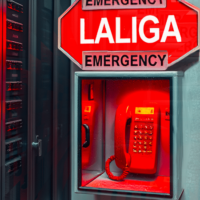Writer’s Block/Photo by Steve Johnson on Unsplash
Editor’s Note:
Formerly a film actress, Meg Tilly is best known for her roles in “The Big Chill” and “Agnes of God” — for which she won a Golden Globe Award for Best Supporting Actress, as well as an Academy Award nomination. Tilly is the author of two adult novels, Singing Songs and Gemma, and is currently at work on her second YA novel, Lucky. She lives in Vancouver, BC, with her family.
I was struggling with my writing, so I was profoundly grateful that I had a lunch date and could flee for a brief respite. My friend is a successful surgeon with a thriving practice. Sometimes I get the feeling that, for all of his accomplishments, he feels as if he’s observing life from afar, through a window or the reverse end of a telescope. I imagine that becomes necessary as a doctor, when one is required to perform operations where people’s very lives hang in the balance. Talk about performance anxiety.
We were having lunch at a chic eatery with white tablecloths and a menu featuring fancy, miniscule concoctions of tasty, overpriced foods, and yet I couldn’t seem to shake my morning’s failures and enjoy the occasion.
“Do you ever get the equivalent of writer’s block when you’re in surgery?” I asked my friend, expecting him to laugh and say in a deep confident voice, “No, of course not. I’m a professionally trained surgeon. I’ve studied at top-notch universities for many years. I know exactly what I’m doing every step of the way.”
But he didn’t.
He got thoughtful.
“So what is this writer’s block, specifically?” he asked. “How does it manifest for you?”
“Well, I’m staring at the blank page, trying to write but coming up with nothing, no matter how hard I try. Every word I get down feels forced and unnatural. In that moment I realize I’m the worst writer in the world, and everything I attempt will be a big smelly pile of dung that no one would ever want to read, let alone buy.”
“Hm …, ” said Jon. “Interesting.” His face was intent, as if he were absorbing what I’d said and was running it through a processor.
Although the act of talking about writer’s block had made me feel slightly sweaty, as if somehow saying the words might awaken the beast, I felt pleased, too. Interesting was a much better response to receive from Jon than boring as hell.
“I’ve experienced something quite similar,” he said.
“You have?” I squeaked.
He nodded. “I hadn’t really thought about it before, but, yes, on occasion I do get the surgeon’s equivalent of writer’s block. Where I open a body, and the problems seem overwhelming, insurmountable, and I don’t know what to do, how to fix it.”
“You don’t know what to do?” I parroted, feeling rather weak-kneed. “I always thought surgeons ¾ I mean, all that training, years of experience ¾ snip this, fix that, sew the patient up again …”
“I’ve performed hundreds of successful operations, and yet it happens. Unexpected variables come into play. You’d be surprised how different people look when you open them up.”
“I thought everyone was the same inside.”
“Nope. Everybody’s different. There are slight variations. And then, of course, if there’s cancer, and if it has metastasized . . .” He shook his head. “You go in with a reasonable idea of what you’re going to find, but there are surprises.”
“So what do you do?” I was trying not to show how this knowledge was freaking me out. “In your line of work you don’t have the luxury of hours bashing your head against the wall.”
“If I get stuck,” he said. “I find it helps to move, focus on a simpler problem. While I’m sorting that out, the answer comes to me about the previous portion of the body I was stuck on. Focusing on something different frees up my mind and allows my subconscious to show me a way in. A solution.”
I think about that conversation often. Sometimes, when I get stuck, I do as my friend does. I go around the wall, write XXX and carry on with the story, then revisit where I got stuck once the writing is flowing again.
I also will ask my inner critic to step outside for a while. I assure her that I’ll invite her back once the first draft is completed. If that doesn’t work I make a deal with myself to write one paragraph. That’s all. Just one. When I finish that paragraph, the logjam is broken, and I can continue forward.
I’ve found I need to mix things up. What worked last week might not work today. Sometimes, I don’t read over my day’s writing, so when I arrive at my desk the following morning, I can dive in and fix the previous day’s spelling, punctuation, and awkward sentences. This can ease me into the story, and hopefully I’ll be up and running when I arrive at the blank page, and it won’t seem so daunting.
If possible, I don’t stop writing at the end of a chapter. I leave a bit that needs completing, or I make myself write the first two sentences of the new chapter before I quit for the night.
There are a multitude of ways to keep our minds and stories moving forward. The trick is finding what works for you. And, most importantly, the world is tough enough, so I try to be gentle with my inner artist, be kind. And I try to remind myself, when writer’s block is beating me up: “So you didn’t make your page count. Oh, well. Thank goodness you aren’t a surgeon!”
The post Do Surgeons Get Writer’s Block? Author Meg Tilly on Inspiration appeared first on Signature Reads.
Source : Do Surgeons Get Writer’s Block? Author Meg Tilly on Inspiration














